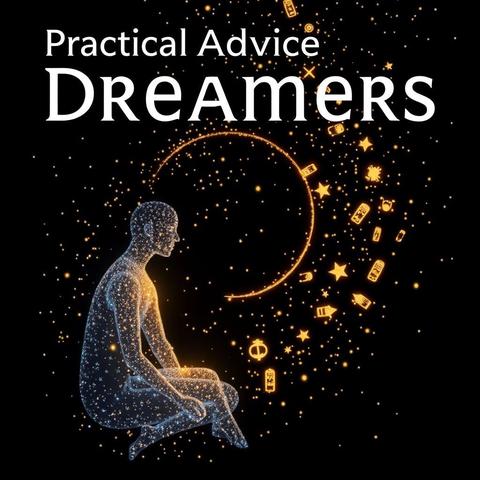Have you ever woken up from a dream, heart pounding, mind racing, utterly captivated – or confused – by the vivid imagery and emotions? I remember a dream I had years ago – I was climbing a sheer cliff face, the wind whipping my hair, the ground a dizzying drop below. The feeling of vulnerability and the exhilarating sense of accomplishment as I finally reached the top stayed with me for days. What did it mean? This is a question many of us ask, a curiosity that taps into something profoundly personal and powerful: our dreams. This introduction to dream therapy will unlock the secrets hidden within your nighttime journeys, exploring the fascinating world of dream analysis and its potential for personal growth.
Understanding the Language of Dreams: Decoding Symbols and Meanings
Dreams, far from being random firings of neurons, are often considered a window into our subconscious mind. They are a rich tapestry woven with symbols, metaphors, and emotions reflecting our deepest fears, desires, and unresolved issues. Dream therapy utilizes this powerful language to unlock self-awareness and facilitate personal transformation. But how do we decipher this complex code?
The Symbolic Nature of Dreams
The key to understanding dreams lies in recognizing their symbolic nature. A recurring symbol, for example, might represent a specific aspect of your life or personality. A common example is flying. While literally flying might be impossible, dreaming of flying often symbolizes freedom, ambition, or overcoming obstacles. Conversely, being chased can represent feelings of anxiety, stress, or being overwhelmed by life’s challenges.
Analyzing the symbols within a dream requires considering their personal significance. What do these symbols mean to you? A house, for example, might represent your sense of security and family for one person, while for another it could symbolize their career or emotional state. The interpretation isn’t universal; it’s deeply personal.
Analyzing Dream Elements: More Than Just Images
Interpreting dreams goes beyond simply identifying symbols. We must consider the overall context:
- Emotions: What emotions did you experience in the dream? Fear, joy, sadness, anger? These emotions are crucial clues to the dream’s underlying message.
- Characters: Who appeared in your dream? Familiar faces? Strangers? The characters often represent aspects of your own personality or people in your life.
- Setting: Where did the dream take place? A familiar location or a strange, unfamiliar environment? The setting adds layers of meaning, reflecting your inner world.
- Plot: What happened in the dream? What was the storyline? The narrative itself can offer insights into current struggles or aspirations.
For instance, a dream about being lost in a dark forest could represent feelings of confusion, uncertainty, or being lost in your life path. The darkness symbolizes fear or unknown challenges, while the forest could be a metaphor for complex emotions or decisions.
- Lucid Dreaming in Therapy: Unlocking Your Subconscious for Personal Growth
- Guided Dream Therapy Sessions: Unlocking Your Subconscious for Personal Growth
- Group Dream Therapy: Unlocking Collective Insights and Personal Growth
- Dream Therapy for Couples: Unlocking Shared Dreams, Strengthening Your Bond
- Dream Interpretation Techniques: Unlocking the Secrets of Your Subconscious
The Hidden Meanings Behind Common Dream Themes
Some dream themes are remarkably common, each bearing unique interpretations:
- Dreams of death: These are often not literal premonitions but rather symbolize transitions, endings, or letting go of aspects of yourself or your life. They might signify the end of a relationship, a job, or a particular habit.
- Dreams of flying: As mentioned earlier, this often represents freedom, escaping limitations, ambition, or spiritual awakening. The height of the flight and the ease of movement further add to the interpretation.
- Dreams of being chased: This commonly points to feelings of anxiety, fear, or being overwhelmed by responsibilities or external pressures. The chaser’s identity can provide further context.
- Dreams of falling: This often represents a loss of control, feelings of insecurity, or a sense of inadequacy in some aspect of your life.
- Dreams of water: Water is a powerful symbol frequently appearing in dreams. It often symbolizes emotions, subconscious feelings, and the flow of life. Calm water might represent peace, while turbulent water could signify emotional turmoil.
These are just a few examples; the variations are countless. Understanding these common themes helps us build a framework for exploring the unique symbolism within your personal dreams.
Common Variations and Themes: Nuances in Dream Interpretation

Let’s delve deeper into the nuances of dream interpretation by examining variations of common dream themes. For example, consider dreams about teeth:
-
Losing teeth: This often signifies feelings of loss of power, control, or self-confidence. It might be connected to anxieties about aging, professional challenges, or interpersonal relationships. The specific teeth lost (front teeth often symbolize social status, while molars relate to power and strength) can add further insight.
-
Teeth falling out: This variation is particularly potent, often linked to feelings of helplessness or vulnerability. The emotion surrounding the event in the dream is critical to accurate interpretation.
-
Broken teeth: This symbolizes feelings of inadequacy, frustration, or being unable to express oneself effectively.
The context is key. If the dream of losing teeth is accompanied by feelings of relief, it might indicate letting go of a burdensome responsibility. If, however, it’s accompanied by anxiety and fear, it might signify a deeper fear of losing control.
The Interpretation and Deeper Messages of Dreams: Uncovering Personal Truths

Dreams are not just random images; they often serve as powerful metaphors that help us navigate our lives. They can:
- Highlight unresolved conflicts: Dreams often surface unresolved issues or conflicts we might be subconsciously avoiding. Analyzing the dream can help bring these issues to light, allowing for conscious processing and resolution.
- Reveal hidden desires: Dreams can reveal our deepest desires and aspirations, highlighting what truly matters to us. This self-awareness can be incredibly empowering.
- Guide personal growth: By understanding the symbolic language of our dreams, we can gain profound insights into our patterns of behavior, emotional responses, and underlying beliefs. This self-understanding is fundamental to personal growth.
- Promote emotional healing: Dream therapy can be a powerful tool for emotional healing, allowing us to process traumatic experiences or difficult emotions in a safe and supportive environment.
Think about the dream of climbing the cliff. My initial interpretation revolved around overcoming a major challenge at work, but reflecting further, the vulnerability associated with the climb also mirrored a period of intense personal insecurity. This realization facilitated self-compassion and prompted me to seek support during that difficult time. The dream served as a guide, leading me towards self-acceptance and healthier coping mechanisms.
Practical Advice for Dreamers: Harnessing the Power of Dreamwork

Dream analysis isn’t just passive interpretation; it’s an active process of self-discovery. Here are some practical steps you can take to better understand your dreams:
- Keep a Dream Journal: The most crucial step is keeping a detailed record of your dreams immediately upon waking. Include every detail you can remember – the setting, characters, emotions, and plot.
- Reflect on the Emotions: Pay close attention to the emotions you experienced in the dream. Were you happy, scared, angry, confused? These feelings are crucial clues.
- Identify Recurring Symbols: Look for patterns in your dreams. Do certain symbols or themes reappear frequently? These recurring images often hold significant meaning.
- Connect Dreams to Your Waking Life: Consider how your dreams might relate to your current life circumstances, challenges, relationships, or aspirations. This connection often provides crucial insight.
- Practice Mindfulness: Engage in mindfulness practices such as meditation or journaling to increase self-awareness and improve your ability to access and interpret your dreams.
- Seek Professional Guidance: If you’re struggling to interpret your dreams or if they are consistently causing distress, consider seeking professional guidance from a certified dream therapist.
Conclusion: Embark on Your Journey of Self-Discovery
Understanding and interpreting your dreams can be a profoundly enriching experience. It’s a path to self-discovery, personal growth, and emotional healing. Dreams offer a unique language, a window into the depths of your subconscious mind, providing valuable insights into your thoughts, feelings, and behaviors. By learning to understand this language, you can unlock powerful potential for self-awareness and transformation.
At Dream Therapy Now, we specialize in helping individuals navigate the complexities of their dreams through expert analysis, sleep science, and therapeutic practices. We believe in the transformative power of dreams and are dedicated to guiding you on your path to clarity, self-understanding, and personal growth. Let us help you unlock the secrets within your dreams. Contact us today at info@dreamtherapynow.com or visit us at 143 Horizon Dr, Bedford, NH 03110 to begin your journey toward a more fulfilling and meaningful life. Your dreams are waiting to be understood; let’s explore them together.
Dive into our blog to discover a wealth of content that will illuminate the significance of your nocturnal adventures and guide you through the labyrinth of dream symbolism. Impeccable Dream hopes this guide was helpful! If you want to see other blog posts about Dream Therapy Services, here are some that may be of interest to you.